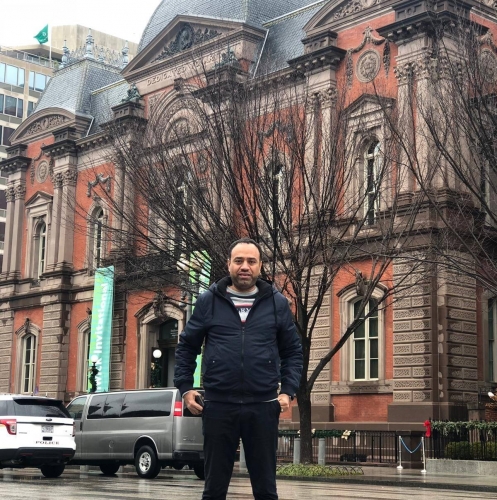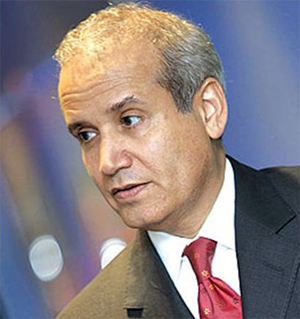Why Iran's proxies fear evidence
U.S. Supreme Court Justice Louis Brandeis coined the phrase “sunlight is said to be the best of disinfectants” and this is certainly the case when it comes to defeating the blurring tactics used by Iran-backed militias in Iraq. The February 15 rocket attacks on Erbil, a wanton act of vandalism that sprayed 107mm high explosive munitions across a densely populated city near a U.S. base, were followed by a new attack on U.S. forces at Al-Asad Air Base in Iraq on March 3. An Iraqi and a Filipino died in the Erbil strike, which wounded nine others; and a U.S. contractor died at Al-Asad. Kurdish security forces arrested at least two of the perpetrators behind the barrage of rockets that hit Erbil, and then reported he had confessed to undertaking the attack. The militia fighter in Kurdish custody claimed he was recruited by Kata’ib Sayyid al-Shuhada, a militia group struck by the U.S. in Syria last week, as a response to its involvement in the attack on Erbil.
In the case of both rocket attacks, Iran-backed militias undertook the attacks but did so in a blurry manner, either claiming the attack through a “façade” group (Saraya Awliya al-Dam in the Erbil case) or not issuing a claim at all (in the Al-Asad case). We know this because the militias used their dedicated media networks – Telegram channels and Twitter pages, plus some more obscure methods – to preemptively hint at the coming attacks, report the attacks with uncommon rapidity, and then dominate the coverage of the attacks with unique detail. What this duality tells us – obscuring their role in the attack but hinting strongly at it – is that militias also find so-called “gray zone warfare” difficult. On the one hand, they need to avoid the downsides of their actions – retaliation by the U.S. and blame for civilian deaths caused by their rockets. In the other hand, they want to take credit for “resisting” the United States, NATO and any other Western powers providing security assistance to Iraq.
As a result of this tricky balancing act, they make plenty of mistakes that can be gathered as evidence of their culpability. Militia leaders are constantly implicating themselves by demonstrating command and control of rocket and bombing cells, ordering them to stop or start attacks against this or that class of target. In the case of Erbil, Kata’ib Sayyid al-Shuhada might have provided manpower to move and fire the rockets, but the enterprise was clearly driven by, and claimed by U.S.-designated terrorist Qais al-Khazali and the U.S.-designated Foreign Terrorist Organization Asa’ib Ahl al-Haq. This is why AAH’s media organs – Sabereen News and the façade groups Ashab al-Kahf and Saraya Awliya al-Dam – dominated coverage of the attack from thirteen minutes before the rockets landed.
Militias like Kata’ib Hezbollah, Asa’ib Ahl al-Haq, Kata’ib Sayyid al-Shuhada and Hezbollah Harakat al-Nujaba are also struggling to play a different kind of shell game – namely being part of the armed forces of Iraq when it is convenient, but not under state control. When U.S. aircraft struck Kata’ib Hezbollah-run checkpoints in Syria on February 25, killing one Kata’ib Hezbollah member, the militias all characterized the strike as an attack on the Popular Mobilization Forces (PMF), an auxiliary arm of the Iraqi security forces that draws salaries from the Iraqi state but only loosely answers to the chain of command. Yet the PMF is not authorized to be in Syria, where members of Kata’ib Hezbollah and other Iraqi militias operate, while on full pay from the Iraqi government but under the operational control of Iran’s Islamic Revolutionary Guard Corps (IRGC). As Iraq’s Prime Minister Mustafa Kadhimi noted after the February 25 attack, the Iraqis hit by the U.S. airstrike in Syria “were not true members of the Iraqi security forces”. The key lesson from recent “gray zone” jousting with Iran and its militia proxies is that sunlight is indeed the best form of disinfectant, and that the United States is quite capable of playing in the gray zone as well.
Since the summer of 2020, Iraqi and Kurdish intelligence agencies have made symbolic arrests of Kata’ib Hezbollah, Asa’ib Ahl al-Haq, and Kata’ib Sayyid al-Shuhada rocketeers. In each case, the arrests, however limited, have caused the militias great discomfort and alarm. While Iran-backed militias do their best to distort their complicity in rocket attacks, arresting militia fighters and exposing their complicity in rocket attacks undermines their ability to escape the reach of the law. The decision by Kurdish authorities to arrest the Kata’ib Sayyid al-Shuhada member and report his confession also indicates that where there is political will, together with encouragement and backing from the U.S., it is possible to impose a degree of accountability that, in the absence of which, would otherwise provide militias with carte blanche. Further, linking militia media operations and “façade’ groups to real organizations like Asa’ib Ahl al-Haq causes a visible, measurable cringe among such networks, followed by fragmentation and a new wave of energetic but ultimately impossible efforts to create new anonymous brands.
The uncovering of Kata’ib Hezbollah’s launch of drones from Iraq into Saudi Arabia in May 2019, September 2019, and January 2021 has similarly exacerbated breaches between Kata’ib Hezbollah and the Iraqi government. Highlighting Kata’ib Hezbollah’s control of Baghdad airport resulted in its role there being diminished. Demonstrating militia corruption at Iraq’s largest port resulted in a clean-out of port officials and military garrisoning of Umm Qasr.
Iran-backed Iraqi militias value legitimacy and try to portray themselves as acting within the law. They value being a formal part of the security forces, yet they simply lack the discipline to follow Iraq’s constitution and laws. The next steps in this effort will be to develop more evidence of militia culpability in crimes, and to provide that evidence to Iraqis, to support civil lawsuits and criminal cases. The United States should use its return to multilateralism to encourage Europe and Gulf States to adopt Global Magnitsky-type human rights and anti-corruption sanctions, which would greatly strengthen their impact.





